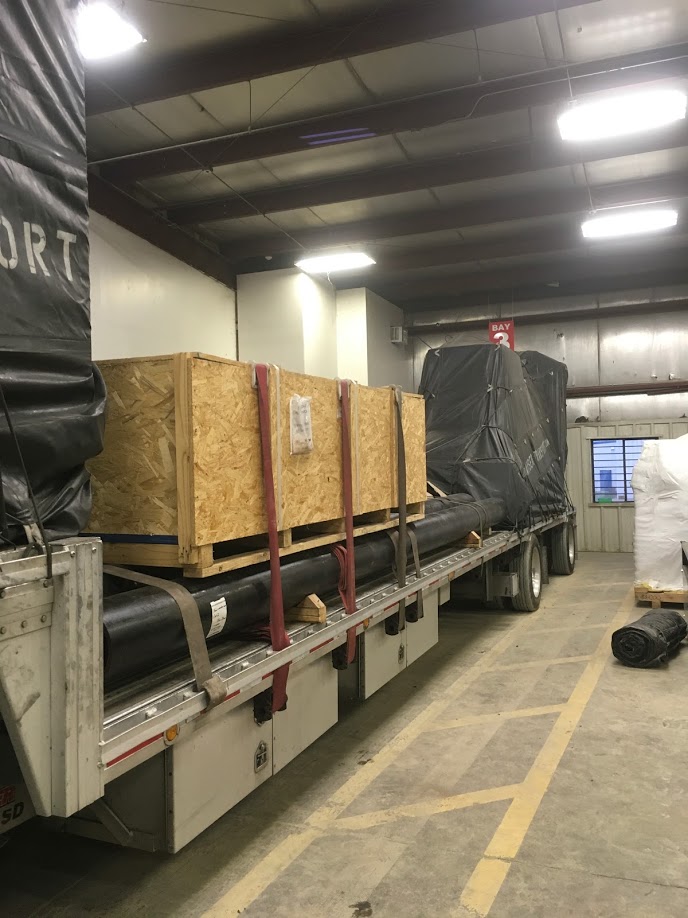Companies transport 71% of all goods in America with over-the-road trucking. For some companies, however, it can prove cost-prohibitive to ship goods by leasing a full semi-truck. Less than truckload (LTL) shipping is a cost-effective alternative for moving your retail goods. Here, we’ll cover the basics of LTL shipping and why it’s so popular among businesses that want to save on shipping costs. We’ll also talk about what you should know before your first LTL shipment, as well as who’s the best LTL freight carrier for your company. Less than truckload shipping is a good option for many companies, but you’re not alone if you don’t know how to get started.
To learn the basics of less than truckload shipping and what it can do for your company, keep reading.
What Is LTL Shipping?
LTL shipments never take up the full space on the truck. A less than truckload shipment can weigh as little as 150 pounds to as much as 15,000 pounds.
Imagine that you need to ship goods but don’t need to fill up a full 48- or 53-foot trailer.
In that case, you can arrange to combine your shipping with other companies. With this arrangement, you’ll only pay for the space that you use on the truck.
Less than truckload shipping simply means transporting a relatively small amount of goods. It’s the opposite of full truckload (FTL) shipping. FTL shipping involves a single company hiring a carrier to move full truckloads of goods.
LTL shipping services typically manage smaller packages and freight. For the carrier, these kinds of goods are easy to break down into small units. Usually, these units weigh less than 150 pounds.
It’s impossible to ship units of this size economically with FTL shipping. A company using an FTL semi-trailer must make the best use of space and fuel.
LTL freight carriers enable companies with smaller shipments to take advantage of the savings and efficiency of FTL shipping. As with FTL shipping, a range of factors can affect the cost of shipping your products.
LTL Versus FTL
When someone mentions shipping by truck, people typically think of full truckload (FTL) shipping. This shipping method involves leasing a full semi-trailer to ship your goods.
As with LTL shipping, the cost for FTL shipping varies depending on a few key factors—size, weight and special handling. However, this is where the similarity between the two shipping methods ends.
LTL shipping gives you an advantage in that you can combine your shipment with another company’s goods. With FTL shipping, your goods are loaded into only one truck.
An LTL shipment will stop at several terminals between the start and end of its journey. Meanwhile, an FTL freight carrier will pick up your shipment and proceed directly to its destination.
With LTL shipping, the carrier will handle your goods several times as they transfer them from one truck to another. With FTL shipping, your freight will never leave the truck.
If you ship refrigerated goods, the carrier will determine your transit time based on set schedules and delivery routes. However, this rule doesn’t apply to FTL shipping.
With an LTL shipment, you’d typically ship about one pallet of goods. With an FTL shipment, however, companies typically ship up to 26 pallets of goods. Altogether, these goods can weigh anywhere from 5,000 pounds to 45,000 pounds.
Benefits of LTL Freight
LTL shipping offers several benefits. It’s a safe and secure way to transport your products. Less than truckload shipping enables businesses to cost-effectively deliver their products to customers across the country. With LTL shipping, you can transport your goods efficiently and profitably.
Your cargo only uses part of the space in the trailer rather than the whole container. More importantly, you’ll only pay for what you use.
Most LTL shipping companies also provide specialized handling. For instance, you might need to transport fragile or hazardous goods. In either case, you can do so at a more reasonable cost with an LTL freight company.
You can also take advantage of LTL shipping to meet your production standards. For instance, you wouldn’t need to wait until you produce 10,000 pounds of product before arranging a shipment.
Today, more retailers are shifting toward just-in-time inventory to meet the demand of a rapidly growing number of online shoppers. With LTL shipping, you can arrange transport as needed to meet this demand.
If you produce goods in a smaller volume, you can get your product into the hands of your customers immediately. LTL shipping enables you to turn around orders faster.
More importantly, you can close more sales quickly. LTL shipping also enables you to move your goods securely.
A Better Way to Move Your Goods
LTL carriers package pallets securely. This practice reduces the chances that your goods will get damaged during transport.
Imagine that your shipment has special handling requirements. LTL carriers have considerable experience managing all types of special shipments.
Also, LTL freight is easy to track. These kinds of shipments are marked at several points during transit. For this reason, it’s easy for you to stay informed about the progress of your LTL shipments.
You can estimate the location of your in-transit goods at any time by checking on the details of your shipment. These details might include:
• Bill of lading numbers
• Pickup date ranges
• PO numbers
• PRO numbers
To track your LTL freight shipments, you can also track the shipment reference number
Furthermore, less than truckload shipping is environmentally friendly. Thanks to LTL shipping, there are fewer trucks on the road. Also, the trucks that are on the road are operating at maximum capacity.
These benefits enable you to conserve the environment. They also help you to minimize the carbon footprint of your business.
How Less Than Truckload Shipping Works
An LTL shipment begins with the carrier collecting your goods at your facility. They’ll then unload your goods in a terminal. There, the carrier will process your order.
The LTL freight carrier will consolidate shipments bound for the same location. They’ll then load those shipments into another truck. Now, the driver will transport those shipments to a regional terminal.
Once again, the shipments will go through sorting. The carrier will then load the shipment into smaller trucks for LTL delivery.
LTL trucks deliver tremendous flexibility for US retailers. Again, LTL shipping is more affordable.
In addition, less than truckload shipping is faster than rail shipping. It’s not dependent on the timetable of the railroad.
The cost for LTL shipping will vary depending on the origin and delivery points of your shipment. It will also vary depending on the dimensions and weight of your goods.
Yet other variables, such as shipping mode and shipping type, affect the cost of LTL freight. As a rule of thumb, the further you ship your goods, the more the shipment costs.
Special handling can also contribute to the cost of LTL shipping. If you ship fragile, perishable or hazardous goods, you’ll most likely have to pay a bit more to transport them. By arranging for an LTL freight quote, you can find the perfect shipping services for your needs.
LTL Add-On Services for Your Unique Needs
Another benefit of LTL freight is that you can order customized services. These services can address your requirements and concerns. However, it’s also important to understand that additional services will increase the cost of your shipment.
For example, you may need to get your goods to a location as soon as possible. In this case, you’ll need to request expedited delivery. If so, you can order expedited services.
You can also request inside pickup and delivery. You’d request this kind of shipping add-on if you need the driver to enter your building to pick up your goods. You may also request the service if you need them to unload your shipment at the delivery location.
Finally, you can request limited access LTL freight service. You’d need this type of additional service if the carrier cannot access a destination easily. Typically, you’d need limited access LTL shipping if you ship to certain destinations, such as:
• Construction sites
• Rural areas
• Strip malls
In either case, a good LTL carrier will happily provide this service and exceed your expectations. Fortunately, you’ve come to the right place to find the best LTL freight carrier around.
Are You Looking For an LTL Carrier?
Now you know more about the basics of less than truckload shipping and what it can do for your company. All you need now is the best logistics partner around to help you meet your shipping needs.
Kaiser Logistics is here when you need a high-quality open deck freight solution. Our team can handle any shipping requirements—no matter how big or small. Also, we’re committed to delivering cost-effective freight solutions that meet your budget.
Contact Kaiser Logistics today at (608) 314-1830 or connect with us online for a fast, free LTL freight quote.

